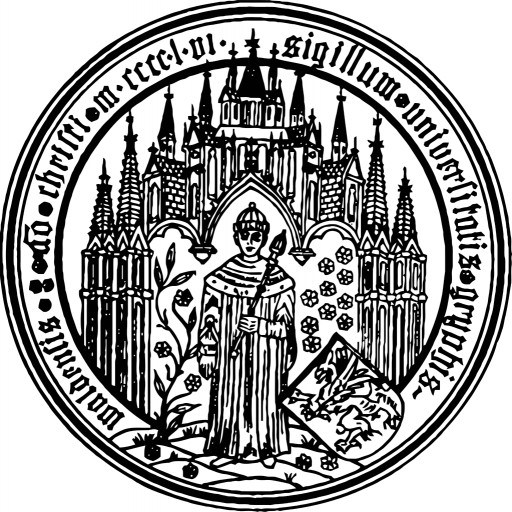Photos of university / #unihohenheim
Earth and Climate System Science is a comprehensive interdisciplinary Master’s degree program offered by the University of Hohenheim designed to prepare students for understanding and analyzing complex environmental and climatic processes. This program focuses on the interaction between the Earth's atmosphere, oceans, biosphere, and lithosphere, emphasizing the systemic nature of climate change and environmental sustainability. Students will gain in-depth knowledge of climatic systems, environmental modeling, and data analysis, equipping them to address contemporary challenges related to climate variability, sustainable resource management, and environmental conservation.
The curriculum combines theoretical foundations with practical skills, including coursework in climate physics, earth observation, geospatial analysis, and environmental policy. Students will engage in hands-on research projects, fieldwork, and data interpretation, fostering critical thinking and problem-solving abilities vital for careers in research, environmental consulting, policy-making, and international organizations. The program also emphasizes the importance of interdisciplinary collaboration, integrating natural sciences, social sciences, and economics to develop holistic solutions for climate-related issues.
Throughout the program, students will have access to state-of-the-art laboratories and research facilities, as well as opportunities for international exchanges and internships. The teaching staff comprises experienced researchers and practitioners dedicated to advancing knowledge in climate change and earth system sciences. Graduates of this program will be well-equipped to contribute to scientific research, governmental agencies, environmental NGOs, and private sector organizations focused on sustainability and climate resilience. The Master’s in Earth and Climate System Science at the University of Hohenheim provides a solid foundation for those seeking to make impactful contributions to understanding and mitigating climate change challenges at regional and global levels.
Educational organisation
In the course of their studies, students complete 17 modules and a Master's thesis. Acquisition of theoretical knowledge is combined with practical exercises including field measurements. Eleven compulsory modules are dedicated to acquiring basic skills in and fundamental knowledge of Earth system science. For instance, in these modules, students study feedback mechanisms over the land surface by operating and analysing soil-vegetation-atmosphere models as well as agricultural and economic models.Particularly innovative components of the programme are:
- The debate seminar in the second semester
- Training in data assimilation as a key technology in weather forecasting, climate simulations and re-analyses of regional climate
- Operation and analyses of regional climate models
- Application of remote sensing for Earth system observations
- The synthesis of aspects of natural science with economic models
Students have the opportunity to deepen their knowledge in various fields of research within six specialisation modules which take place in the second and third semesters.
For a short description of all modules, see:
https://www.uni-hohenheim.de/module-catalogue/ess
Study abroad unit(s)
Obligatory: noneWelcomed: several
Internships
Not obligatoryForms of assessment
Mostly writtenCourse objectives
Graduates are able to make their own contributions to Earth system analyses and research as well as to ecologically sustainable developments in society. They stand out through their interdisciplinary thinking and flexibility when it comes to applying scientific methodologies in their project work. They are capable of objectively assessing their own methods and results and of presenting them factually and clearly.Perspective career areas include the following:
- Research activities in the field of Earth system science (meteorology, environmental physics, geoscience, etc.)
- Consultancy in the public service, private business sector, and non-governmental organisations
- Occupations in international and bilateral organisations working in the field of development assistance
- Scientific writing
Language requirements
English language proficiency can be proven by presenting one of the following accepted certificates:a) internet-based TOEFL test with a minimum of 90 points
b) IELTS certificate with a minimum of 6.5 points
c) UNIcert II certificate with a minimum grade of "good"
Applicants are exempted from producing proof of language proficiency if they
a) declare English to be their mother tongue and are citizens of one of the following countries: United Kingdom, Ireland, Australia, Canada, New Zealand, United States of America, Antigua and Barbuda, the Bahamas, Barbados, Dominica, Grenada, Jamaica, Saint Kitts and Nevis, Saint Vincent and the Grenadines, Trinidad and Tobago, Belize, Guyana
b) have completed their Bachelor's studies with English as the language of instruction at a university in the European Union
c) have visited a bilingual school at which one language of instruction was English
d) haven taken English as a school subject during the Oberstufe (final years) at a German Gymnasium (secondary school) with a minimum grade point average of "befriedigend" ("satisfactory", eight grade points) at the end of the Oberstufe
Academic requirements
Please find information on the application procedure at: https://www.uni-hohenheim.de/ess-application-en?&L=1The selection committee evaluates applicants on the basis of the documents submitted and awards credits for potential and chances of success with regard to the study programme. Documented proof of the following information is taken into account for the assessment:
- Applicants are required to have successfully completed a Bachelor's programme (or equivalent) with a profile in natural sciences, geosciences or agricultural sciences.
- Degrees in agricultural biology, biology, and biobased products and bioenergy offered as Bachelor's programmes at the University of Hohenheim are accepted. The selection committee may accept further study programmes in the fields of natural sciences and engineering as related and amend the list accordingly.
- Relevant vocational training with a background in mathematics, the natural sciences, or technology, such as laboratory technician or technical assistant (each with a profile in the natural or geosciences) is credited.
- The following is also credited: vocational training in programming languages; documented internships with a minimum duration of four weeks in computer simulation technology or as a research assistant in natural or geoscientific field experiments; documented attendance at summer schools based on mathematics, the natural sciences or geosciences lasting a minimum of two weeks
- Subject-specific coursework is recognised if it is documented with a minimum of 5 ECTS credits in the subjects mathematics, physics or chemistry.
The selection committee's evaluation scheme is based on the documents submitted.
The assessment of the individual criteria is done according to set guidelines which will be described in the following. For each criterion, a set number of points will be given. A maximum of 50 points may be achieved.
On the basis of the total points achieved by each eligible applicant, a ranking list is created which is the basis for admissions. The ranking list is based on:
60% Overall grade of the undergraduate degree or the average grade of exams already taken
20% Subject-specific academic achievements
20% Completed professional training, work experience, attendance of summer schools
Enrolment fees
There is no application fee; application is free of charge.Later, when you enrol, there is an administrative fee of approx. 160 EUR for each semester, which includes a public transportation ticket for six months. For more information, please see: https://www.uni-hohenheim.de/costs-financing.
Costs of living
For more information about living expenses, see:https://www.uni-hohenheim.de/costs?&L=1
You should calculate at least EUR 660 per month for housing, food, health insurance, books, excursion fees, etc.
Job opportunities
Students from non-EU countries are allowed to work 120 full days or 240 half days per year. Working as an academic assistant at the university or for a research institute is considered to be supportive of studies. Therefore international students are allowed to perform work of this nature for more than 120 full days or 240 half days.For more information, please see: https://www.uni-hohenheim.de/82143?&L=1.







